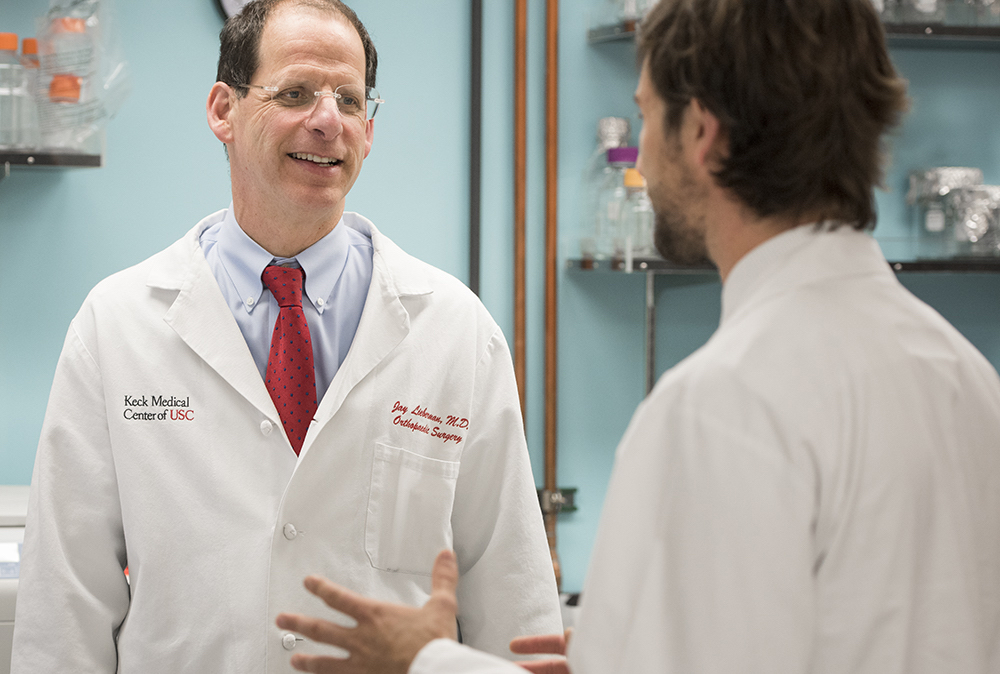
Dr. Lieberman is an orthopedic surgeon at Keck Medicine of USC, who specializes in total hip and knee replacement, as well as diseases of the hip and knee.
Here’s what you won’t find on his resume.
He loves sports.
“Growing up, I was always interested in sports. I played baseball and football in the street, when I was a kid, and I played basketball in high school. In fact, I still play basketball. I have been to seven Final Fours, the Super Bowl and multiple World Series. I enjoy the excitement, the competitiveness and the teamwork involved in sports. I enjoy attending these events with my family.”
He was going to be a history professor.
“When I went to college, I had a deep interest in American history and thought about becoming a history professor. My first TA [teaching assistant] was 29 years old, and he had finally obtained a full-time faculty position at another university. I was only 18, but I remember thinking that it seemed like it took a long time for him to get his PhD and his first job. Obviously, I decided to go to medical school. The irony is that the time I spent in medical school, residency and fellowship, is much longer than it takes to get a PhD.”
He worked at a psychiatric hospital.
“After my freshman year at college, I had a summer job working as an intern at a psychiatric hospital. The patients came in at the beginning of the summer and by the end of the summer, they were discharged home. I liked the idea of helping people and decided to become a psychologist or a psychiatrist. I returned the next summer, and most of the patients were back. I was discouraged that the patients had not been cured. I decided that psychiatry was not for me, but I knew that I wanted to pursue a field where I could help others.”
There are three reasons why he chose to become an orthopedic surgeon and specialize in total joint replacement.
“In my third year of medical school, I was on the orthopedic trauma service. People came in with fractures; we would fix them, and the X-ray provided immediate feedback. During my orthopedic rotation, I realized that I liked the action and that orthopedic surgery involved mostly acute problems. I fell in love with total joint replacement for three reasons: Placing prostheses in patients is a technology-oriented procedure; it is one of the most successful procedures in the history of medicine; and you develop long-term relationships with patients, since they are followed for life.”
He thinks spirituality plays a role in patient recovery.
“I have been studying factors that influence outcomes of total joint replacement since the early 1990s. I noticed that patients who seemed to be spiritual weathered difficult medical issues in a way that you would not necessarily see in others. How a patient does post-op is not just impacted by the response to the surgical procedure but also by overall health and mental health. We are doing studies to assess how spirituality impacts a patient’s feelings about their total joint replacement.”
View Dr. Lieberman’s full biography and schedule an appointment.
Topics
